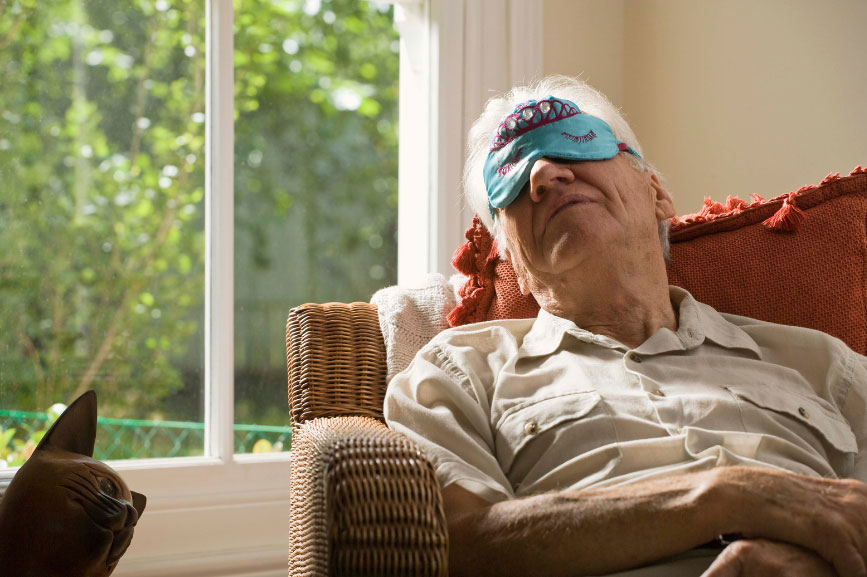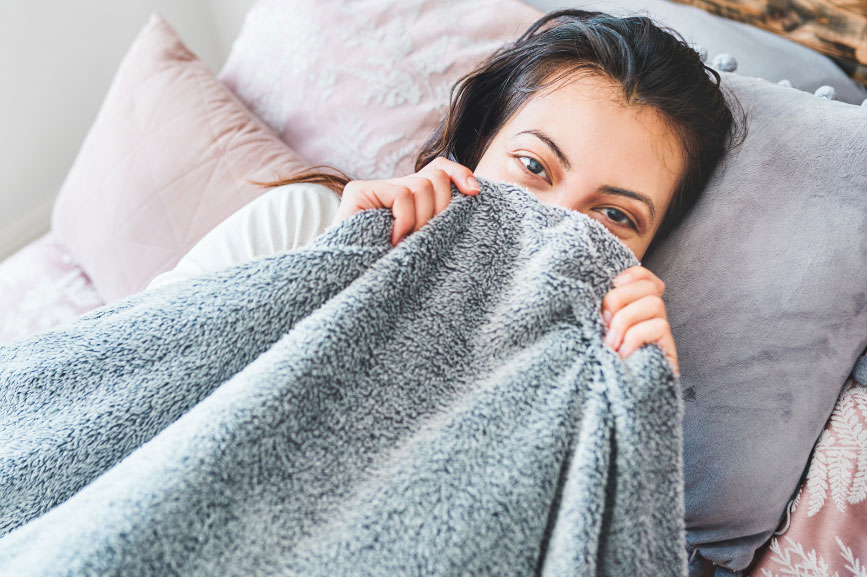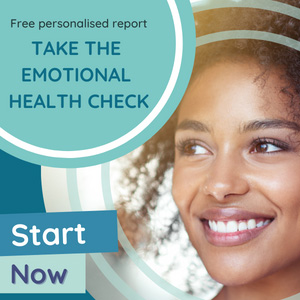In this article.
Have you ever drifted off for a quick nap, only to wake up feeling more on edge than refreshed? If so, you're not alone. Many of us assume that a little daytime sleep can offer a boost in energy, but for some people, especially if they are living with some level of anxiety, a quick nap can leave them feeling off kilter.
So, in this article, we'll explore what's really happening in our brains and bodies during a quick nap, why it might trigger an anxious response, and how you can begin making positive changes if you've noticed this yourself.
But before we do, it's helpful to understand what's happening as we sleep and later in this article, I'll share some strategies for a healthier sleep routine.
The Hidden World of Sleep Stages and Brainwaves
Sleep isn't one monolithic state, it's a dynamic journey through several stages, each defined by distinctive brainwave patterns and functions. On average, adults need between 7 and 9 hours of sleep per night, and over this period, you'll typically go through 4 to 6 sleep cycles, with each cycle lasting around 90 minutes. Knowing a little about these stages can help you understand why a quick nap might sometimes backfire.
Light Sleep (Stages 1 & 2):
In the first stage, your brain shifts from relaxed wakefulness (alpha waves) into theta waves. This light sleep is a gentle transition, where you remain easily roused. Stage 2 deepens this process, introducing brief bursts of rapid brain activity called sleep spindles and protective K-complexes, which help shield your sleep from disturbances.
Deep Sleep (Stage 3):
This is where delta waves dominate—a slow, powerful rhythm essential for physical recovery, tissue repair, and immune function. However, if your nap extends into this phase, waking up can be a shock to your system, leading to disorientation.
REM Sleep:
After deep sleep, you enter REM (Rapid Eye Movement) sleep, where your brain activity ramps up to levels like being awake. REM is not just about dreams; it's also a critical period for processing emotions, reducing stress, and integrating experiences from the day. By allowing your brain to sort through and “file away” these emotional experiences, REM sleep can help reduce anxiety and prepare you to face the next day with resilience and clearer, more rational control.
Short naps, sometimes called ‘power naps', usually keep you in the lighter stages of sleep, avoiding the disorienting effects of deep sleep and its associated sleep inertia.
Circadian Rhythms: Your Internal 24-Hour Clock
It's also helpful to know that beyond your sleep stages, your body operates on a 24-hour schedule known as the circadian rhythm. This internal clock governs when you feel alert or sleepy and is heavily influenced by natural cues like light and darkness.
At night, your body releases melatonin, the hormone that signals it's time to wind down, while cortisol, the ‘stress hormone', peaks in the early morning to help you wake up. When you take a nap during the day, especially one that's too long or too late, you risk throwing off this delicate balance. Disrupted circadian rhythms can lead to hormonal imbalances that make it harder to relax later, contributing to anxiety and a persistent feeling of unrest.
Sleep Inertia: Why you feel groggy
If you've ever woken up from a nap only to find yourself in a haze of confusion and disorientation, that could be sleep inertia. It's a state most pronounced when you're roused from deep sleep. This isn't just about feeling a bit drowsy, sleep inertia can significantly impair your cognitive function, making it difficult to think clearly and react appropriately.
For those already battling anxiety, this groggy period can kick start a vicious cycle. Waking up in a fog might lead to racing thoughts, increased worry, and a sense of being unable to regain control, all of which can intensify your anxiety. The confusion and impaired thinking during sleep inertia can leave you stuck in a loop of anxious thoughts that are hard to break free from.
Why can Daytime Naps Fuel Your Anxiety
If you're prone to anxiety, even a well-intentioned nap can sometimes do more harm than good. Here's how:
- Disrupting Natural Sleep Patterns:
Long or late naps can shift your circadian rhythm, delaying the onset of your nighttime sleep and reducing its overall quality. - Hormonal Imbalances:
An untimely nap might interfere with the natural ebb and flow of melatonin and cortisol. Elevated cortisol levels later in the day can ramp up stress and anxiety. - Amplifying Underlying Anxiety:
The grogginess from sleep inertia and the disruption of your sleep cycle can create a feedback loop where anxious thoughts multiply, making it even harder to settle down.
Morning Cortisol and Anxiety: Waking Up with Stress
For many people with anxiety, mornings can feel like a battle before the day even begins. The cortisol awakening response (CAR) is designed to boost alertness, but in some, it can be overactive. As cortisol levels spike shortly after waking, those with sensitive stress responses might find themselves immediately overwhelmed by tension and negative thoughts. This excessive surge not only makes you feel jittery but can also set a negative tone for the rest of your day.
The good news is that you can take proactive steps to manage your cortisol surge and reclaim your mornings. You can find some practical strategies and insights in my recent blog here: Waking Up Anxious: Understanding the Cortisol Connection.
Strategies for a Healthier Sleep Routine
So, what can you do if you suspect your daytime naps might be making your anxiety worse? The key is to work with your body's natural rhythms rather than against them.
Prioritise Quality Sleep at Night:
Try to stick to a consistent sleep routine and aim for 7–9 hours of uninterrupted sleep in a cool, dark, and quiet environment. Establish a calming pre-sleep routine—perhaps some reading, meditation, or a warm bath—to signal your brain that it's time to wind down.
Practice Mindful Napping:
If you must nap, keep it brief. 10 to 20 minutes is ideal and try to schedule your nap in the early afternoon, before 3pm to avoid interfering with your nighttime sleep cycle.
Manage Stress and Hormones:
Incorporate stress reducing practices into your daily routine. Regular exercise, mindfulness, and deep breathing can help regulate cortisol levels and minimise the stress that contributes to anxiety.
In my free guide '7 mistakes that stop you sleeping', I explain more about the common things we all do that sabotage our ability to get a good, full night of sleep, which gives you some practical advice to begin making some positive changes to improve your sleep. Download for free here:
Exploring Solution-Focused Hypnotherapy for Sleep and Anxiety
For many who struggle with poor sleep and anxiety, conventional methods might not always provide the relief needed. This is where solution focused hypnotherapy can be particularly beneficial. Rather than dwelling on past issues, this approach emphasises creating positive change and setting future goals.
- Deep Relaxation:
Hypnotherapy can guide you into a profound state of relaxation, easing the transition into sleep and reducing the stress response that leads to sleep inertia. - Rewiring Thought Patterns:
By concentrating on your strengths and desired outcomes, hypnotherapy helps reframe negative thought cycles that contribute to anxiety, setting the stage for healthier sleep habits. - Personalised Sleep Strategies:
Working with a hypnotherapist, you can develop tailored techniques to align your sleep routine with your circadian rhythm, ensuring that your nighttime sleep remains restorative while minimizing the need for daytime naps.
This holistic approach can complement traditional sleep hygiene practices, paving the way for a more balanced, resilient, and anxiety free sleep routine.
Final thoughts:
If your daytime nap leaves you feeling anxious, it might be time to re-examine your sleep habits. By understanding the science behind sleep stages, brainwave shifts, and the crucial role of your circadian rhythm, you can start to pinpoint why your naps might be more disruptive than restorative. Prioritising consistent, quality nighttime sleep, practicing mindful napping, and exploring complementary strategies like solution-focused hypnotherapy can help break the cycle of anxiety and grogginess.
If you'd like some support to begin your journey towards better sleep, please book an initial session with Andrew online. We can explore what's going on for you and tailor a hypnotherapy program for your needs using a combination of positive talk therapy with hypnosis. A powerful combination helping you address your issues both consciously and subconsciously.










